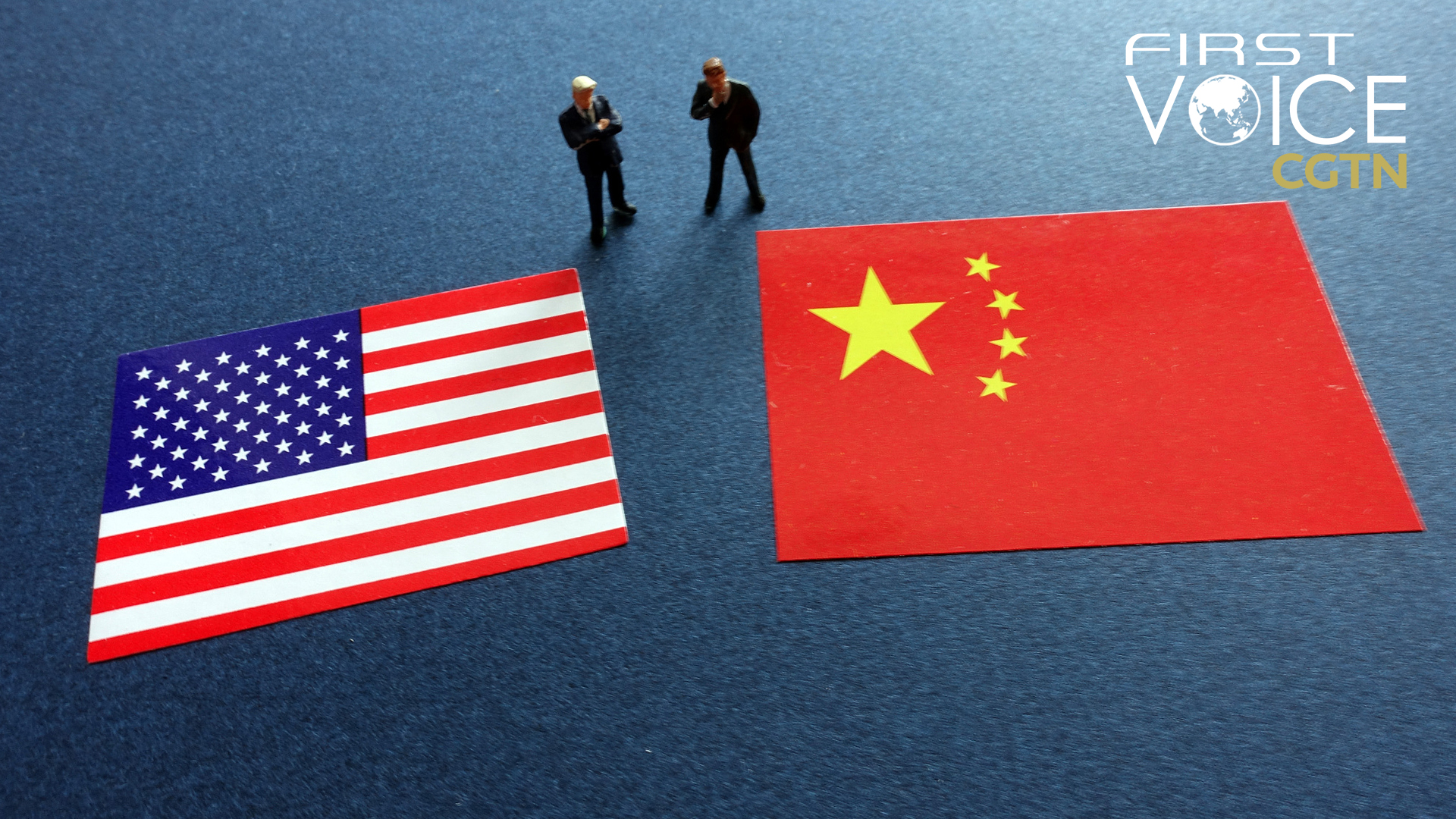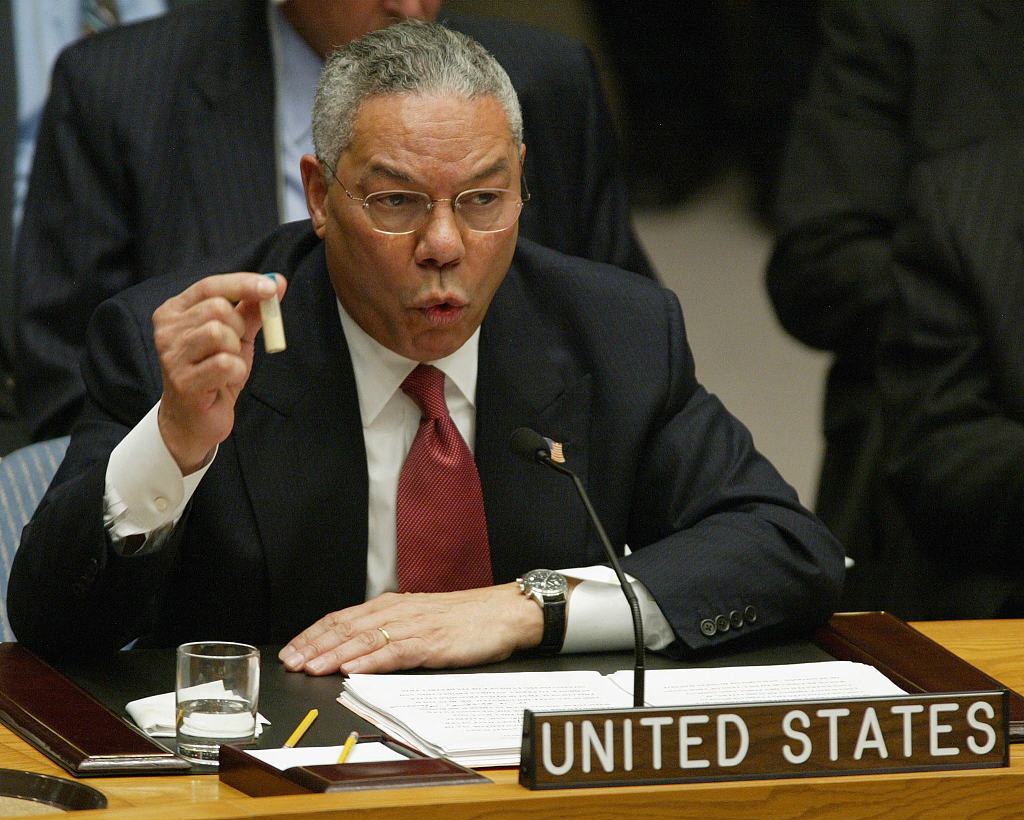
Editor's note: CGTN's First Voice provides instant commentary on breaking stories. The column clarifies emerging issues and better defines the news agenda, offering a Chinese perspective on the latest global events. This First Voice article is written by CGTN Special Commentator Farhad Chowdhury, a security and strategic affairs researcher and columnist. The article reflects the author's opinions, and not necessarily those of CGTN.
U.S. slander campaign against China is limitless. The U.S. Department of State released a report on September 28, claiming that China is spending billions of dollars a year on influence, censorship, and disinformation to affect global perceptions which could jeopardize global media freedom and freedom of speech.
As a Chinese Foreign Ministry spokesperson said, the U.S. Department of State report is in itself disinformation as it misrepresents facts and truth. This appears to be U.S. information cold warfare against China. Western media have started covering this subject with anti-Chinese rhetoric and enticing titles. Western media outlets appear to be working with U.S. politicians to demonize China. However, it is the U.S. that uses large-scale propaganda to build, sustain, and reinforce its global dominance.
West has manipulated global information and propagated falsehoods for decades. The West labels it a disinformation campaign when China exposes the U.S.-led West's double standards, its biased policies toward developing countries, and actual multilateralism. Cooperation and partnerships between Chinese media and media of other countries are increasing day by day. The U.S. doesn't see this positively.
However, China isn't acting wrongly. The world should listen to China and other developing nations, many of which were ruthlessly colonized by the West. The U.S. now targets Chinese media because Chinese media are always vocal in favor of the rights of developing countries, realistic multilateralism, international cooperation and true globalization. And China is opposed to the Cold War mentality, unjustified protectionism, trade wars, and any interference of the U.S. and the West in the global south's internal affairs in the name of promotion of their style of democracy and so-called human rights violation, which, of course, goes against the U.S.' will.
In August 2022, the Stanford Internet Observatory (SIO) and Graphika, a social media analytics firm, revealed years of covert influence efforts to promote pro-Western narratives on social media, with the U.S. government under scrutiny.
Did we forget the U.S. disinformation campaign against Saddam's weapons of mass destruction (WMD) claims? Iraq, once a historical civilization, was destroyed because of the deception effort by the U.S. disinformation campaign. Everyone now understands the U.S.'s motives. The U.S. spreads deception to justify aggression and meddling as democracy, pillage as justice, and devastation and killing as human rights. Its global diplomatic presence and propaganda machines make the U.S. a master at spreading falsehoods. But even those who believed the U.S.' allegation that Saddam Hussein had WMDs have grown wary of Washington.

Then U.S. Secretary of State Colin Powell holds up a vial as the evidence of "weapons of mass destruction" being developed in Iraq when he addresses the United Nations Security Council at the UN in New York, U.S., February 5, 2003. /VCG
Then U.S. Secretary of State Colin Powell holds up a vial as the evidence of "weapons of mass destruction" being developed in Iraq when he addresses the United Nations Security Council at the UN in New York, U.S., February 5, 2003. /VCG
Even some in the U.S., such as Senator Rand Paul, admitted that the U.S. government is the greatest propagator of disinformation in the history of the world. The U.S. always wants to dominate foreign media outlets for geopolitical reasons.
For example, there is still debate regarding the U.S. proposal to include Bangladeshi media in its new visa restrictions policy. The absurdity is that U.S. Ambassador to Bangladesh Peter Haas said recently that visa restrictions will be applied to the media ahead of the national election in January 2024. It completely violates freedom of speech.
"Is the U.S. pressuring our media that 'you have to talk for U.S.' interest?'" This revelation has led to concerns among journalists in Dhaka that the Joe Biden administration is furthering its agenda to tighten its grip on Bangladesh. Such efforts by the U.S. will affect media freedom in Bangladesh. This is merely one illustration of how the U.S. uses coercive media tactics to further its interests. Examples of the manipulation of the U.S. media abound.
The U.S. administration has historically distributed disinformation and rumors on obscure occasions to manipulate public opinion, denigrate other nations, and preserve its hegemony. According to The Washington Post in 2020, a Washington-based corporation "ran fake Facebook accounts" in Venezuela, Bolivia, and Mexico to spread disinformation and support US-backed opposition forces. Facebook removed the accounts.
We knew about U.S. disinformation tactics during the Cold War. Now they have targeted China for serving its geopolitical gain. How the U.S. leverages mainstream and social media for Ukraine war propaganda is also known to us. From supporting paid anti-China think tanks, journalists and experts to writing spiteful, fake reports, hype-ups in the media, and political intervention, the U.S. government enacts and continues terrible disinformation campaigns.
(If you want to contribute and have specific expertise, please contact us at opinions@cgtn.com. Follow @thouse_opinions on Twitter to discover the latest commentaries in the CGTN Opinion Section.)